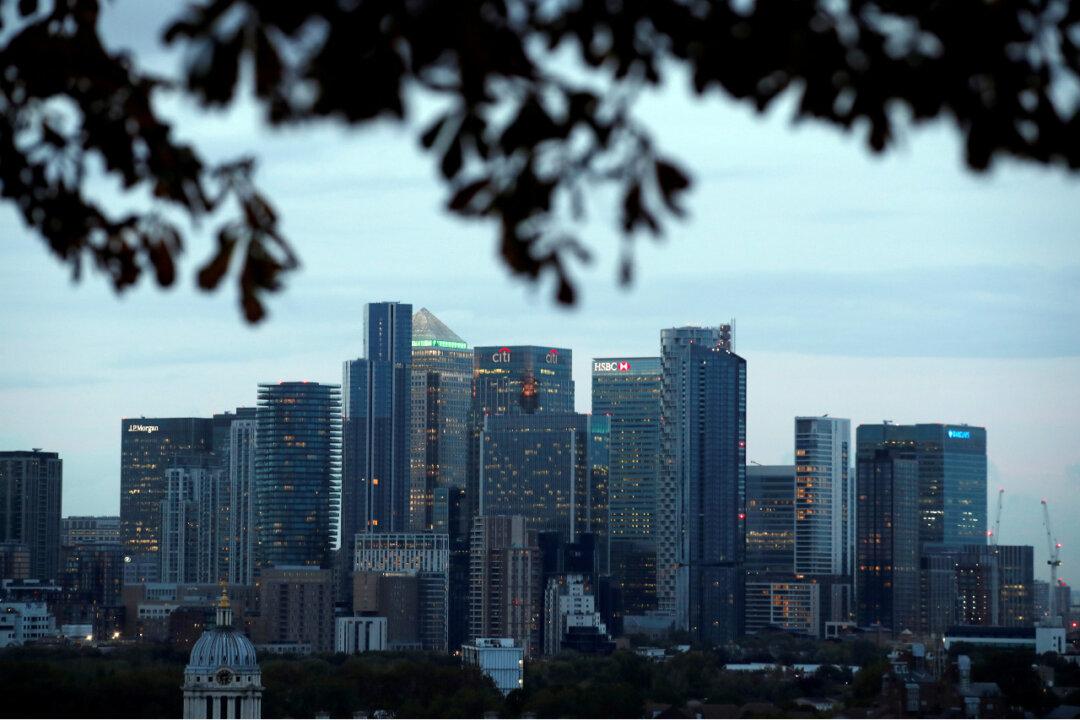Despite an early summer bounce back Britain’s GDP grew more slowly than expected in September and has not recovered from the steep falls in March and April following the onslaught of the CCP (Chinese Communist Party) virus pandemic.
The Office for National Statistics (ONS) in monthly estimated figures published on Thursday showed that September’s growth was just up 1.1 percent over August against the 1.5 percent predicted by a Reuters poll of analysts.





